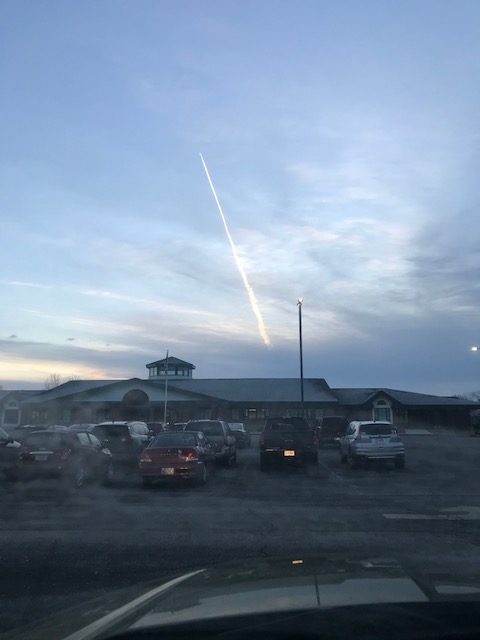
Our youngest daughter and I waited in our car for her school to open. Typical start, typical day. Then we looked out and saw this. Miles above us, a passenger jet carried folks to their next destination as Ava and I sat in our car.
But it’s the contrail that captivated me.
A thought dawned and my photo, shot through a smudgy windshield, resulted.
Here is my thought: the trailing white ribbon breaks down minute by minute and, within a half-hour or so, will disappear entirely.
When the contrail disappears, no evidence will remain in the sky of the jet’s existence. It will be as if it never existed and never happened. Nothingness will remain. Vanished and empty, not even a void is there.
It passed. It is past. It is the past, like all of the past. For unless some material or evidence or proof can be sensed, nothing is left to use in recalling or reconstructing. History—that slice of the past which is remembered for some reason—is impossible. As an occurrence, the past is everything before now and, now, is gone.
How much of our lives, I wonder, is the equivalent of that contrail in this morning’s sky.
Yet William Faulkner, the great writer, asserted that the past isn’t dead, it isn’t even past. F. Scott Fitzgerald wrote something similar a few years before.
They’re right, in my view. The effects of the past are everywhere even if we don’t know how to remember it and don’t make it into history. The power of the past is clear in that it lingers, echoes, has traces, leaves marks and imprints, and evolves into something else.
The past—ever-present. The past—quickly-gone. Both things are true.
Well, it’s on to the rest of my day. The weather predictions say snow is coming. But it won’t last. Thanks for spending time with me.







